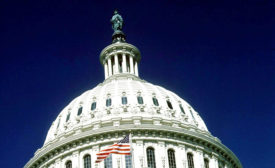Psychology in the Workplace
The U.S. Presidential election is stressing us out!
It’s equal for Republicans and Democrats
October 17, 2016
Never miss the latest news and trends driving the safety industry
eNewsletter | Website | eMagazine
JOIN TODAYCopyright ©2024. All Rights Reserved BNP Media.
Design, CMS, Hosting & Web Development :: ePublishing








